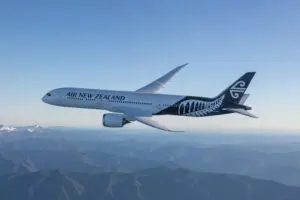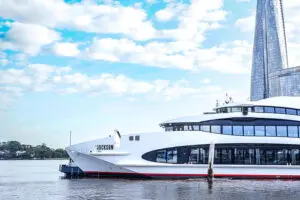Tom Walley is the global managing of Corporate Traveller but is based in Australia.
Walley believes the cost of premium airline seats will continue to drop in 2024 and that, although international travel demand is expected to remain high, the growth in airline capacity will bring down prices.
The recent growth of regional air travel within Australia is also expected to be sustained according to Walley. This appears to be driven by the mining sector – in particular the extraction of minerals to be used in the renewal energy transition.
With Chinese airlines reconnecting with Australia, Brisbane is set to overtake Perth as Australia’s most popular destination for international business travel. Booking data from Corporate Traveller in 2023 showed Brisbane had seen 25 per cent of growth in business travel, compared to Perth’s 34 per cent – with Sydney and Melbourne each having a less than 10 per cent growth rate. By mid 2024, Brisbane will be ahead of Perth.
Small to medium sized businesses – the market segment that Corporate Traveller services – is expected to continue travelling in 2024, regardless of economic pressures, with a recent survey of their clients showing that 91 per cent said this would be the case for their businesses.
“The business travel industry is healthy and is already seeing some critical changes come through,” said Walley.
“Premium fares have already dropped, and we can expect to see economy fares come down by mid-2024 as flight capacity from international carriers increase.
“We’re seeing travellers take advantage of being able to combine business and leisure travel. There’s also a real business focus on face-to-face meeting and collaboration, given the evidence that in-person meetings are the most productive way for businesses to operate.
“Overall, 2024 will bring good news for businesses that travel,” he said.
Walley’s forecasts for the year ahead come after the International Air Transport Association (IATA) last week said last week that global airline revenues are expected to be at record levels in 2024, leading to strong profits for airlines, as revenue growth outstrips expense growth. Worldwide, airlines are expected to post a collective net profit of US$25.7 billion.
“Considering the major losses of recent years, the US$25.7 billion net profit expected in 2024 is a tribute to aviation’s resilience,” said IATA’s director general, Willie Walsh.
“People love to travel and that has helped airlines to come roaring back to pre-pandemic levels of connectivity.
“The speed of the recovery has been extraordinary; yet it also appears that the pandemic has cost aviation about four years of growth.
“From 2024 the outlook indicates that we can expect more normal growth patterns for both passenger and cargo.
“Industry profits must be put into proper perspective,” said Walsh.
“While the recovery is impressive, a net profit margin of 2.7 per cent is far below what investors in almost any other industry would accept.
“Of course, many airlines are doing better than that average, and many are struggling. But there is something to be learned from the fact that, on average airlines will retain just US$5.45 for every passenger carried.
“It is far too little to build a future that is resilient to shocks for a critical global industry on which 3.5 per cent of GDP depends and from which 3.05 million people directly earn their livelihoods.
“Airlines will always compete ferociously for their customers, but they remain far too burdened by onerous regulation, fragmentation, high infrastructure costs and a supply chain populated with oligopolies,” he said.




















